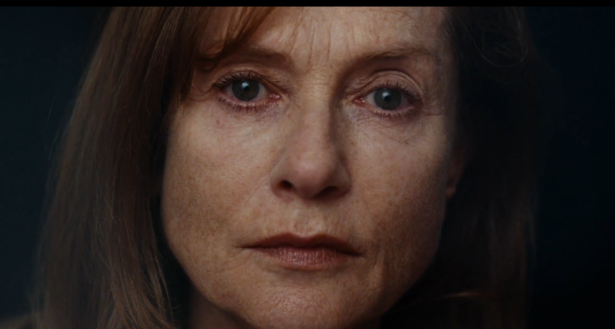
“The best weapons are the stories, and every time the story is told, something changes. There are no photographs to be introduced as evidence[.]”
“All we can depend on are slow-motion replays of our lives.”
~Sherman Alexie, “Captivity”
Joachim Trier, in his newest and third feature film, is interested in story-telling and in the peculiar power of stories, a theme he explores by way of a particular family, a man and his two sons, struggling with the loss of a wife and mother. Each survivor constructs and reconstructs their memories of the dead woman, reconstructions that reveal the particular viewpoints and obsessions of each, perhaps more than they reveal the woman’s own story and identity, for each character, we see, is adrift in his own life, alienated and unsure, and the reach back to the past, to the memories of this woman, is a way of coping with the present, a way of constructing a sense of self.
The husband, Gene (Gabriel Byrne), grapples with his role as a single father, and he consistently fails in his attempts to connect with his youngest son; he grapples with the prospect of a retrospective exhibition of his wife’s work (a collection of award-winning journalistic photographs) and with the subsequently inevitable revelation of family secrets; he grapples with the complexity of the emotions accompanying his relationship with a new woman in his life. The eldest son, Jonah (Jesse Eisenberg), also struggling to gain a footing, finds himself, suddenly, grown up: newly married with a newborn son, he’s completed his Ph.D. and is set to begin his new career as a university professor. He discovers he cannot quite manage the shift in identity and, in what is supposed to be a brief return to his childhood home, cannot seem to leave again. The youngest son, Conrad (Devin Druid), only a young boy when his mother died and now a teenager, recoils inward, rejecting his father’s awkward attempts at intimacy and feasting on memories of a perfect mother.
Each of these characters are radically connected – as family and in grief – but are deeply uncomfortable in that connection: they are unsure of how to live out their relationship to one another, resentful or uncomfortable with the fact of it.
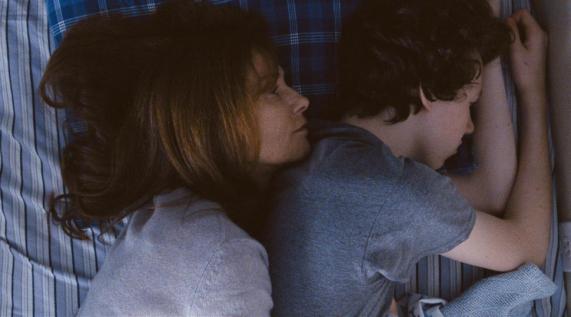
We see flashbacks – in dreams or in day dreams– of each of these male characters, flashbacks featuring the dead woman, Isabelle (Isabelle Huppert), and each flashback centers on the dreamer’s viewpoint. The differing perspectives might, in some other films, perhaps highlight only the multiple layers of the identity of the dead, but other elements of the film underscore the inherently problematic nature of such perspectives. In one set of parallel scenes, we see a concerned Gene following and observing Conrad, and we understand Conrad’s actions through the lens of Gene’s fatherly viewpoint; Gene’s translations of what he sees become ours. In the second scene, we see the same actions again, replayed, Rashomon-like, this time from Conrad’s perspective, and Gene’s limited, now obviously faulty, perspective, of what he was seeing, as “fact,” is revealed.
What we see and how we interpret what we see is further complicated by Isabelle’s former profession as a photojournalist and by an exploration into the photographs as merely apparent truth-tellers. Photos certainly, the film indicates, record facts, but they may not tell the right story, whatever that is, even when a sensitive, talented photographer like Isabelle puts herself into extremely dangerous situations in order to capture that most difficult, candid moment of action. The film is intercut with images of Isabelle herself at work and overlaid with narration, her voice talking about her work, and we should here note it is often unclear whose perspective these Isabelle-images and Isabelle-voiceover is filtered through; sometimes, it is one of the male characters, sometimes a possible third person omniscient narrator. At any rate, Isabelle, in one of these voiceovers describes the perhaps impossible task of getting a particular shot right: the scene, at one point, is the burial of a boy in some vaguely Middle East location. And she asks, “Can I take a photo that would tell the story? Should I?” She worries about “reducing” her subjects to “victims.” She notes that in light of these problems, she tries to approach what she sees “with respect”; she tries “to feel open.” But it is clear that photos like these, photos she’s garnered awards for capturing, hold a weight that possibly they should not hold. And it is possible they should not have been taken in the first place.
And so the film, through the male storytellers and through a query into photojournalism, as well as through a rather overburdened array of other moments of “storytelling,” questions the very notion of historical facts: a New York Times writer and fellow photojournalist composes an essay on Isabelle’s life and work – but we wonder, how deeply does he really know her? A student in a high school English class reads a story, and a day-dreaming Conrad reinterprets it and co-opts it to suit his personal thoughts. The family must sort through Isabelle’s cache of photos and decide which are “important”; they cannot seem to make any decisions or find a way to organize them. Conrad plays video games obsessively, fashioning his characters to suit his tastes. Conrad writes a story he hands to a girl he likes at school, thrilled by the giving more than by her reaction – it is the telling and sharing that matters to him, not the listener’s response. And last, a constant narration of various voices overlays the film’s images; voiceover, here, is a sort of soundtrack that parallels the film’s musical score.
Any fact, we are constantly aware, is always told by a storyteller. Every fact is always, in some sense, divorced from its context.
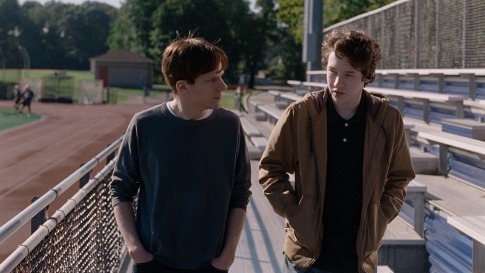
I am, I must admit, drawn to the film’s questioning and exploration of the notion of storytelling itself. There is an irresistible appeal in that theme, particularly for anyone interested in film as a mode of storytelling and as a vehicle for layers of storytelling (visual, aural, textual) and of storytellers (the filmmaker, the characters, the audience who interprets the film’s story). This film, however, may buckle under the weight of its own questions about story, not only because it so incessantly draws our attention to the storytelling theme, but also because it layers that theme with other quite heavy themes and topics: grief and loss, the Middle East conflict, turbulent teenage dysfunction (there’s a reference to school shootings), fraught family relationships and alienation, love, infidelity, growing up. It’s all very serious, and with the equally solemn score by Olla Flottun, at times, dour. Serious, earnest attention to a subject is welcome, of course, but within the seriousness, one might, here, feel bludgeoned. And a perhaps bigger problem is that it’s difficult to find any one strong narrative thread to which to cling and attach personally invested emotion; Gene, Jonah, and Conrad and maybe even a distant, dead Isabelle, alternate as possible protagonists, and while this complexity of narrative voice is admirable, one longs for one voice, however admittedly compromised and narrow, to follow.
And yet another concern dogs possible engagement: while the film is overtly exploring the problem of narrative and unreliable narrator and we are thus obviously encouraged to question the various narrators, it is the men of the film who nonetheless retain storytelling power. In other words, even if we must question the reliability of their stories, theirs are the stories that do, in fact, take precedence. Isabelle is dead; she cannot really tell her story. It is never clear she is telling it, even through some third person narrator. Her life, in sum, is a series of photos and a series of others’ memories. Near the end of the film, Conrad, in conversation with his father, who questions his son’s knowledge of Isabelle, says of his mother, “I saw her, you know. I saw how she was. I was here,” and Conrad’s statement, in that moment, doesn’t seem to be a question, however much we’ve been led to question what characters think they know.
Earlier in the film, too, other key women are casually blocked from the story and from story-telling agency: a female teacher is spat on and silenced in her own classroom; a woman in an intimate relationship with one main character is discarded at the behest of another (and she is never heard from again); Jonah’s young wife is absent while Jonah works through his loss and adult responsibilities (at one point Jonah actually closes the computer screen on her face, ending a Skype conversation); a high school girl loses her voice when Conrad’s narrative uses and co-opts that voice, the film literally using her voice to tell Conrad’s story about the evening he spent with her.
And in the end, it is the three men left together, the potential for healing in their relationship on the horizon, but all the women notably absent – dead or removed. It is possible we are supposed to question all of this, the male dominance in story power at the end of the film. Quite late in the film Isabelle’s face stares at us for a full 15 seconds. She is compelling but clearly impossible to interpret, and perhaps the film shows us this portrait in order to highlight that incomprehensibility. And yet, I do feel I know something about her at the end of the film because, faulty or not, I have Gene, Jonah, and Conrad’s memories in my mind. Whether they are correct or not, they are there. Her life has been, for me, consumed by theirs.
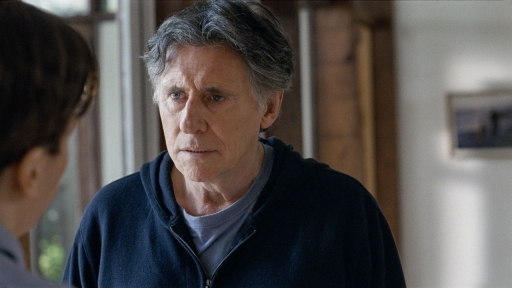
Sherman Alexie begins his poem “Captivity” with a quotation from Mary Rowlandson, a 17th century Puritan woman whose narrative of her capture by the Wampanoag during King Philip’s War went on to become an American and English best-seller. Rowlandson’s tale is, indeed, gripping, but it is a specifically Puritan, English-American perspective: Rowlandson interprets all of the events through the lens of her particular worldview and theology; it is, as such, a personal history and a Puritan history, thoroughly one-sided. Alexie’s poem, reflecting on such a history, acts not only as a kind of re-capturing of that early colonial period for his Spokane Indian perspective, questioning Rowlandson’s particular privileged lens (the English, after all, won the war against the Wampanoag and put the head of Metacomet, aka King Philip, upon a pike, where it remained for years as a warning to the indigenous populations) but as an inquiry into the problematic nature of all story-telling, particularly story-telling that presumes to tell what happened, historically speaking.
Trier’s film, clearly, aims to address the same thorny issue of narrative perspective, but whether he succeeds in his treatment may be a question each individual viewer should answer – and it is, indeed, the sort of film that I hope might start all kinds of interesting conversations, as filmgoers leave the cinema. For me, Alexie’s poem is successful, in terms of his questions of perspective, because Alexie speaks from a historically underprivileged perspective and because I can read Rowlandson’s narrative and Alexie’s poem side by side; narrative and poem speak for themselves, as it were. Trier’s film, for all its questions, never quite transcends the limitations of the male storytellers, and their stories, for me, maddeningly, retain their power over Isabelle even while I do not trust those stories. A storyteller may say, “What I am about to tell you is a lie,” but if that storyteller’s subsequent story is never contradicted by another first-person narrator who gets equal telling time, that first story is the only story I know – and I, in spite of my mind’s rational objections, will come to believe it in the same way that the lies of advertising creep their lively jingles into my subconscious. Gene, Jonah, and Conrad are, then, inevitably, the last word on Isabelle. Stare at me, Isabelle, stare, and stare, but it’s Conrad’s dreams of you I see.
And if you have five seconds to spare
Then I’ll tell you the story of my life :
Sixteen, clumsy and shy
That’s the story of my life
Sixteen, clumsy and shy
The story of my life
That’s the story of my life
That’s the story of my life
That’s the story of my life
The story of my life
That’s the story of my life
That’s the story of my life
That’s the story of my life
That’s the story of my life
That’s the story of my life
That’s the story…
~From “Half a Person,” Louder Than Bombs, The Smiths
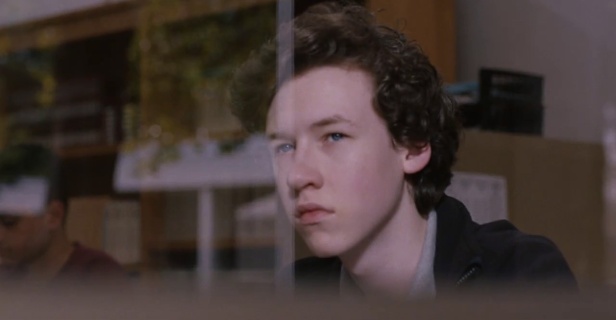
Louder Than Bombs opens at Sundance Cinemas in Seattle on Friday, April 22.
